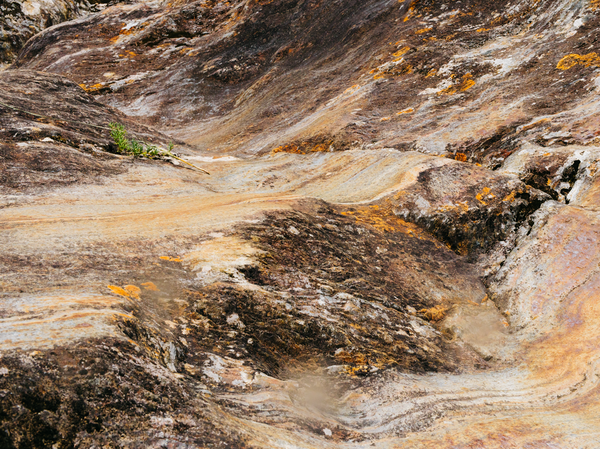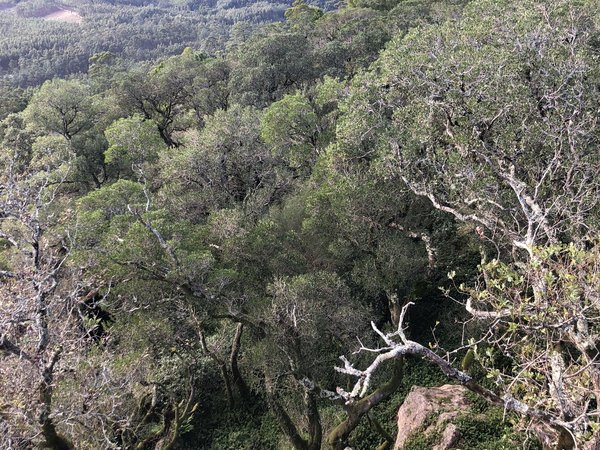This is a past event.
ZERO
ZERO
In a context of ecological changes and crises, we propose a dual reflection on the limits and possibilities of the planet. Initially, we explore ways to regenerate food and production systems, proposing a culture of sufficiency and equity that respects planetary limits. We then instigate the debate based on the question: is it possible to reserve half of the planet as “pure nature”?
At the end of the debates, we showed the documentary Ecossistema ZERO, by Paulo Lucas, which portrays 10 years of the ZERO Association, and its role in building an environmentally fair future.
4:30 p.m. – Welcome | Francisco Ferreira
4:35 p.m. – Sufficiency: an approach transformed into a solution?
Will we be able to implement a set of measures and everyday practices in the near future that avoid the demand for energy, materials, soil and water, while continuing to provide human well-being for all within the limits of the planet?
• 4:35 p.m. – Presentation: Agata Meysner | Generation Climate Europe
• 4:50 p.m. – Round table: Agata Meysner, Susana Fonseca (ZERO), Filipa Saldanha (Crédito Agrícola), moderated by Ismael Casotti (ZERO)
• 17:20 – Question and answer session
17:30 – Global food system: is there still time to regenerate it?
The global food system is unsustainable for people and the planet, but is it possible to solve the global food crisis with the same political approaches that created it?
• 17:30 – Presentation: Inês Costa Pereira | CERNAS ESA/IPV – Centre for Studies on Natural Resources, Environment and Society, Higher School of Agriculture of the Polytechnic Institute of Viseu
• 17:45 – Round table: Inês Costa Pereira, Francisco Ferreira (ZERO), João Cruz (BCSD Portugal), moderated by Fernando Peixeiro (journalist at Agência Lusa)
• 18:20 – Question and answer session
Talks and Lectures x
Agata Meysner e Inês Costa Pereira
Sufficiency and Regeneration
3 DEC
WED 4:30pm - 6:20pm
7:00 p.m. – Biodiversity: is it possible to reserve half the planet as ‘pure nature’?
Preserving a large area of the planet free from human activity requires us to increase the sustainability of our activities, such as fishing or agriculture, and to have more sustainable cities, but how can we reverse the trend of not achieving these goals when we are in an emergency situation?
• 7:00 p.m. – Presentation: Maria Amélia Martins-Loução | Centre for Ecology, Evolution and Environmental Change, SPECO – Portuguese Society of Ecology
• 7:15 p.m. – Round table: Maria Amélia Martins-Loução, Paulo Lucas (ZERO), João Mestre (Fidelidade), moderated by Patrícia Fonseca (Jornal MedioTejo newspaper)
• 8:00 p.m. – Question and answer session
8:15 p.m. – Screening of the documentary “Ecossistema ZERO”
At the end of the presentations, we will screen the documentary Ecossistema ZERO, by Paulo Lucas, which portrays 10 years of the ZERO Association and its role in building an environmentally just future.
Cinema x Talks and Lectures x
Maria Amélia Martins-Loução
Biodiversity - Is it Possible to Set Aside Half the Planet as “Pure Nature”?
3 DEC
WED 7pm - 9pm
03 DEC 2025
WED 16:30–21:00
Free entry*
BOOK YOUR SEAT
Sufficiency and Regeneration | Culturgest
BOOK YOUR SEAT
Biodiversity - Is it Possible to Set Aside Half the Planet as “Pure Nature”? | Culturgest
*By pre-booking or collecting your ticket 15 minutes before the event (limited to the venue's to capacity).
On the day of the event, pre-bookings that have not been collected will be made available 15 minutes before the start of the event.
In English and Portuguese
BIOGRAPHIES
Agata Meysner is a climate justice activist, non-profit entrepreneur, and global speaker from Poland. She co-founded and leads Generation Climate Europe (GCE), the largest youth-led climate justice coalition in Europe. She is a member of the University of Oxford, a One Young World ambassador, and a climate reality leader. Agata has advised several prominent international organisations, including the OECD, UNICEF, and the European Commission, and has spoken on global stages alongside leading political and thought leaders. Her expertise includes the new economy, intergenerational justice, and planetary boundaries.
Inês Costa Pereira is a landscape architect and holds a Master’s in Environmental Citizenship and Participation. She is currently completing a PhD on the agroecological transition of family farming in Portugal. She has worked on landscape architecture and spatial planning projects.
Since 2019, her work has focused on agroecology: she is part of CERNAS ESA/IPV – Centre for the Study of Natural Resources, Environment and Society, at the Escola Superior Agrária, Instituto Politécnico de Viseu, and participates in its action-research group on agroecology, family farming, and women farmers. She was involved in the initial phase of the Caravana Agroecológica project (cE3c-FCUL) and collaborates with the Associação Alimentar Cidades Sustentáveis. She is also part of the coordinating collective of the Agroecology Network in Portugal, organiser of the I and II Confluência pela Agroecologia em Portugal (April 2023 and July 2025).
Maria Amélia Martins-Loução is a biologist and researcher at the Centre for Ecology, Evolution and Global Change, Faculty of Sciences, University of Lisbon. She is also President of the Portuguese Society of Ecology and of the University of Lisbon Alumni Association. She holds a PhD in Biology, a Habilitation in Ecology, and a Master’s in Science Communication. Her distinctions include Corresponding Academic of the Royal National Academy of Pharmacy, the Ibero-American Botany Prize (2010), 100 Women Scientists – Ciência Viva (2016), and the Ciência Viva Grand Prize (2021).












